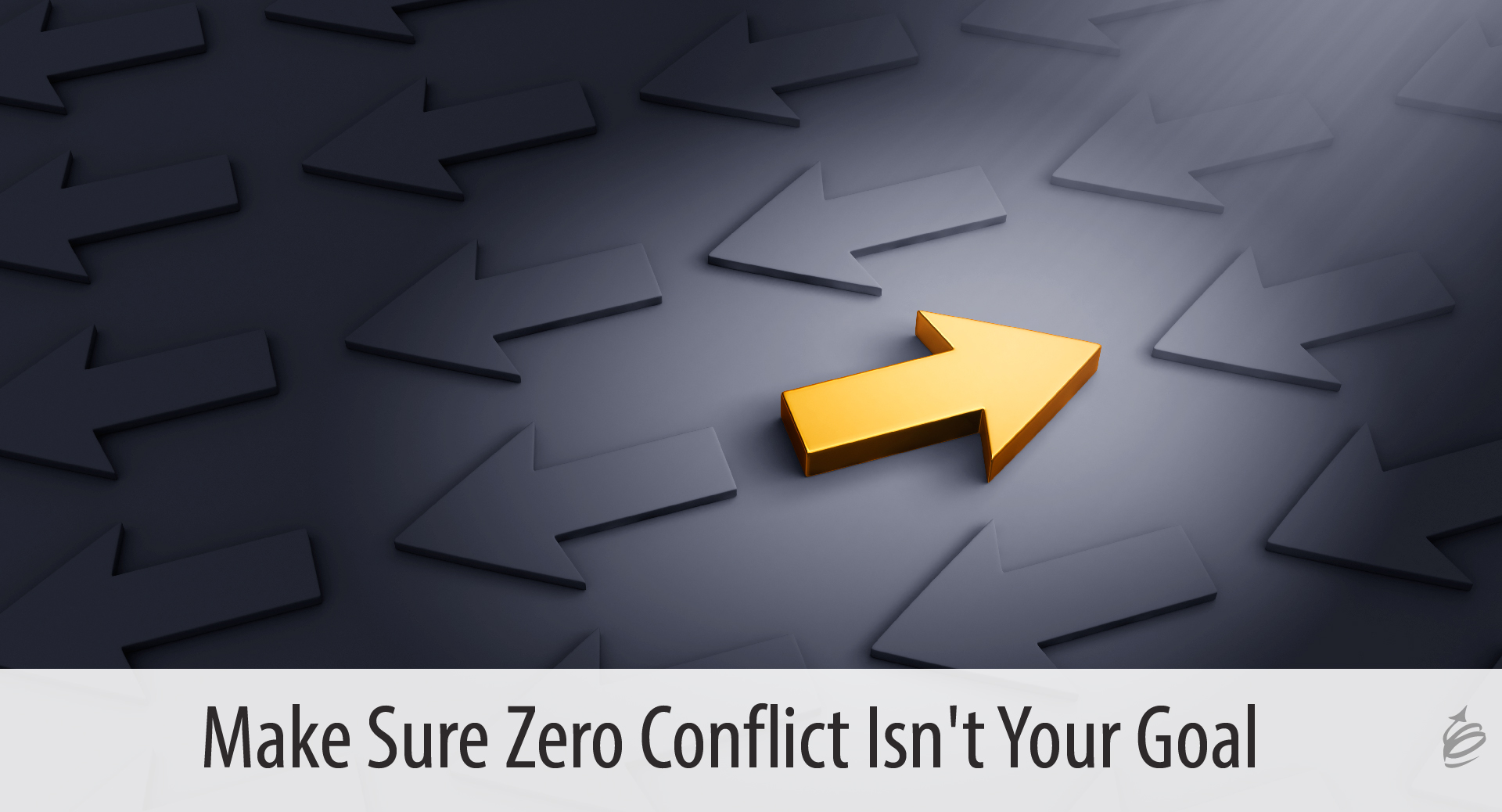 Conflict.
Conflict.
Put people together doing most anything for most any length of time and conflict will occur. Put people together and ask them what the challenges are at work, and conflict will always come up. People have experience and an opinion about conflict, and they don’t talk about positively. We face conflict and generally think if we could rid ourselves of it, we would be better off. Yet, we must be careful about what we ask for, because zero-conflict shouldn’t be the goal.
Not all Conflict is Created Equal
When we think about conflict we think about the negative implications; the frustration, stress and anger. Certainly, conflict can cause those reactions and all of us have experienced them. But let’s not paint all conflict with the same brush. Here are three types of conflict you might encounter at work.
- Task conflict. When people have different expectations of what others are doing or should be doing, task conflict may occur. When these differences exist, arguments about resource allocation, priorities and assumption of blame can occur.
- Relationship conflict. Style differences are real and can be the source of conflict in the organizational petri dish. Often when people “don’t get along” conflicts can grow.
- Values conflict. Conflicts can arise when people there are divides in deeply held values. While most people say we shouldn’t talk about things like politics and religion at work, sometimes values differences create workplace conflict.
Consider a Conflict-Free Workplace
On a first look, thinking about a workplace with none of the conflicts above sounds pretty good. But let’s look again. Without differences of opinion, experience and perspective, if people always defer to the previously stated idea or decisions, what will we have?
Imagine having an idea that is different from conventional wisdom or past practice. Without the presence and allowance for conflict, will those be shared? This is a prescription for a dull and boring workplace where no ideas are created, and little improvement will occur.
Just because conflict can be uncomfortable, and can become a problem, that doesn’t mean we should want a complete absence of it.
Creating a Healthy Relationship with Conflict
So, if conflict can get out of hand, but also has value, how do we find the right balance or create a healthy relationship with it? When we recognize that the existence of conflict isn’t the problem, but how we feel about it is. Here are some ways to get the balance right – to reduce the stress and emotion and get the value of different viewpoints.
- Focus on the perspective, not the person. Conflict doesn’t have to get personal. The longer it lingers without open conversation, the more likely it becomes personal.
- Assume positive intent. When we start with the belief that others want good results like we do, we have a for better chance of hearing them and gaining the value from differences. I’ve recently written about this here.
- Keep everyone focused on the organizational goals. When we have agreement on the goals, we can all put ideas and viewpoints into that context and create healthy conversation and debate.
Of course, this is just a start, but these three practices will give everyone on your team a new, healthier view of conflict and its role in your ultimate success.
…..
There are many sources and causes of conflict – both the kinds we might want, and the destructive kinds too. When people understand both their communication style and the styles of others, they are far more able to navigate the negative conflict – or even avoid it. If you are looking for a tool to help yourself or others build that skill and awareness, take our free sample DISC assessment. If you are looking for a source for DISC assessments and tools to help team and organizations use those skills, we can help with that too.
Start here: https://KevinEikenberry.com/disc

0 comments